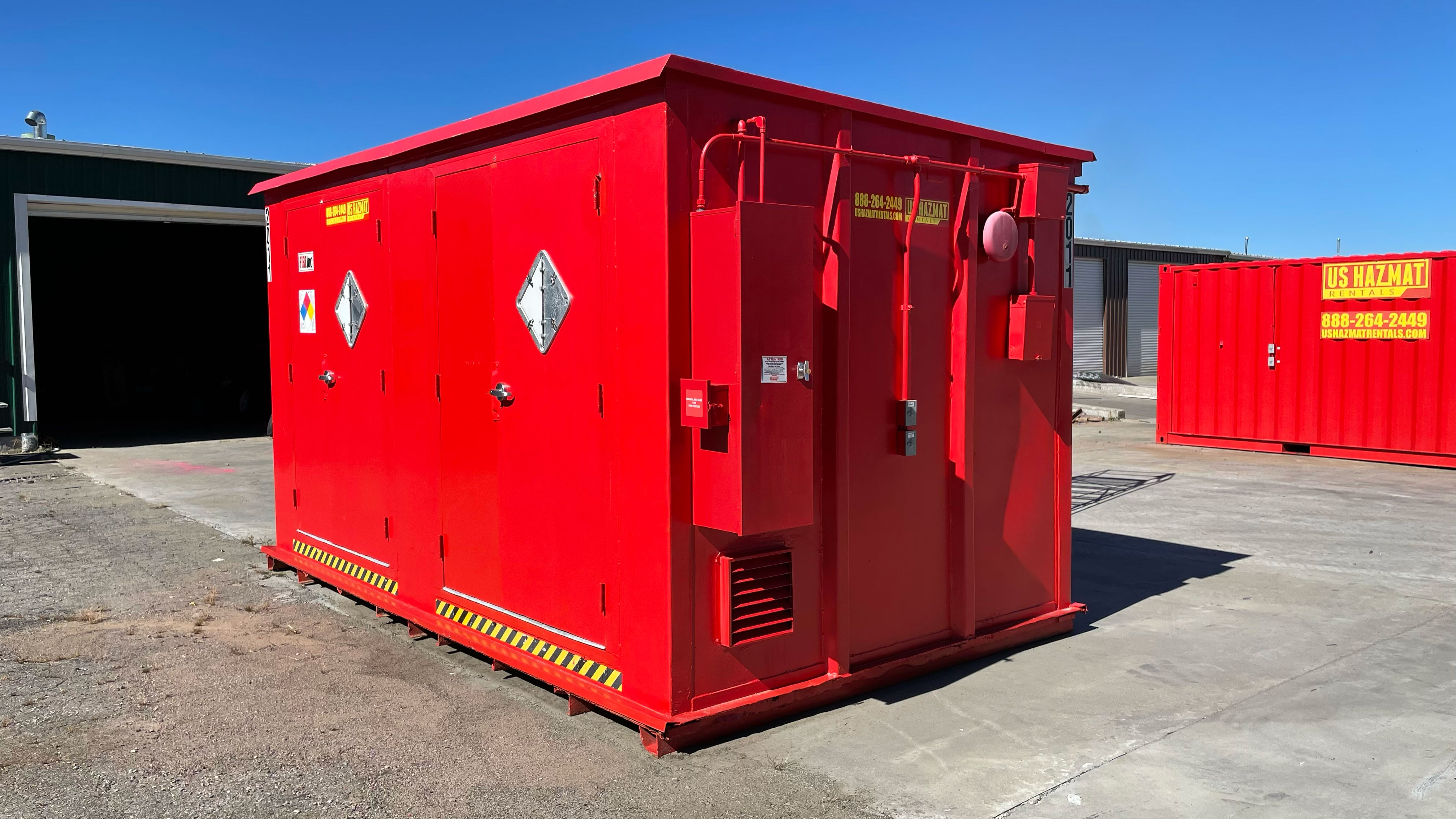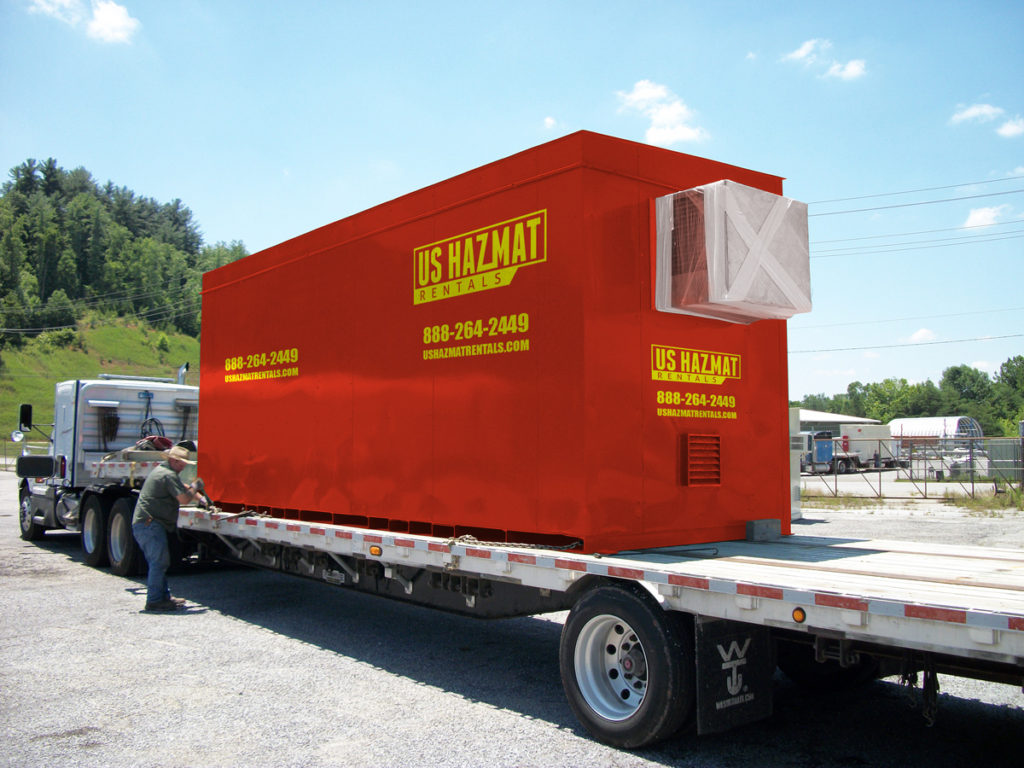
Civil Penalties and Fines for Improper Disposal of Hazardous Waste Have Increased by 100 Percent
Do you remember those paper towel commercials boasting which brand had better absorption for cleaning up small messes? We can’t say their slogans verbatim due to laws on copyright infringement, but the lumberjack approved brand flexed about being the superior picker-up when it comes to tackling accidents – a weird thing to be proud of nevertheless. Either way, we respect their prestige in cleaning up life’s everyday messes. But what if their was a paper towel brand or product-line that could prevent accidents from ever happening? You’re probably smirking right now thinking, “You mean a bottlecap? Or a lid? They already make those, genius!” But what if you could take all those messy substances or chemicals into a super structure or container that could safe prevent these messes from ever escaping? And no, our incredulous consumer, we aren’t talking about a refrigerator either. Besides, you probably wouldn’t want to store what we’re talking about in a kitchen fridge although our storage lockers do offer climate control and ventilation. Knowing how to avoid EPA fines with compliant chemical storage is a lot like organizing the cabinet beneath your kitchen sink. You don’t want dangerous chemicals from coming in contact with each other and you most certainly don’t want these hazardous materials from contaminating your home or backyard.
Separation is Everything When it Comes to Knowing How to Avoid EPA Fines
We can’t help you when it comes to providing chemical storage for your home’s liquid plumber or bleach – unless, of course, unless you use these chemicals that exceeded normal consumer levels – but we can help companies store larger quantities of dangerous chemicals so you can avoid the fate that has befallen so many companies that have chosen against complaint protection in order to save a few dollars. One such company didn’t properly read those pesky safety data sheets in storing dangerous substances was Cleanway Environmental Services Pty LTd. The waste management facility is being fined $15,000 by the EPA. Most of the issues that comprise the complaint pertain to incompatible waste chemicals being stored together throughout the warehouse. This also included chemicals being left outside, waste chemicals not being properly labelled and pallets of laboratory chemicals blocking access to storage bays.
A dangerous reaction, fire or explosion could have resulted from chemicals that must be stored separately mixing, should there have been a leak or a spill,” Ms Howard said. The risk of this happening was increased by forklift movements in the area. Cleanway’s obligations are clearly set out in their environment protection licence, which is designed to reduce risks associated with hazardous chemicals. The EPA expects Cleanway, and all licensees, to comply with the requirements of their licence to ensure the health and safety of the community, the environment and all company employees
Needless to say, this company didn’t know how to avoid EPA fines, but that doesn’t mean you have to befall the same fate!
Hazardous Waste Can Be Just as Dangerous as Manufacturer Products

For the sake of fairness, it’s important to report that Cleanway has since complied with the EPA directions, as well as improved staff training and chemical documentation, and decluttering storage bay egresses. Still, $15,000 is no small sum to cough up due to the government, especially when you’re already shelling out thousands every year in taxes. Another way of examining the financial hit is that $15,000 can easily pay a fraction of a safety manager’s salary, thus helping to eliminate future fines and fees. If you’ve gotten this far, you’re probably skimming the highlights and stopped when you saw the $15,000 mark – everyone cares about money in the fine print, after all. But wait a second… Hazardous waste? Why is this company being fined for chemical garbage or byproducts? It’s trash, isn’t it? Can’t you just throw it out with the rest of the used-up materials or simply toss it into the landside? Well, if this is your attitude when it comes to proper chemical storage, you’re probably on a collision course with a EPA or OSHA inspector and a mountain of fines. Hazardous waste and byproducts from manufacturing processes must be treated with the same respect and vigilance as precursor chemicals.
The Cost of Doing Business Could Destroy Your Company
Civil penalties and fines for failing to properly store hazardous waste will only continue to go up. In 2016, the EPA raised civil penalties for violations of environmental law to match inflation. With the post-pandemic world dealing the world another bout of inflation, we should expect future increases in the near future. In some cases, the maximum civil penalties have been raised by more than 100 percent. But providing compliant storage for hazardous waste is tricky. Storage for residual waste is only temporary and doesn’t have a shelf life nearly as long as the products companies use for manufacturing. We could lament and go on and on about the perils of improper storage for hazardous waste, but you probably don’t want to hear about us drone on about worst-case scenarios, because fire or disaster could never happen to your company, right? We sure those afflicted with disaster and fines had that same mindset, but look at their current perilous straits. Just remember: knowing how to avoid EPA fines could save you thousands in the long run.
As part of the proposed Build Back Better Act, OSHA fines for repeated violations could increase to $50,000 from $9,753 and the maximum to $700,000 from $136,532
What you’re looking for – along with peace of mind – is a turnkey temporary storage solution for hazardous waste products. You’re not going to keep trash or chemical waste at your facility for the long-haul, not that you wan to. Maybe your company only uses the processes that generate hazardous waste at a certain time of year or maybe your company is going through a remodeling, and you need a place to temporary store materials or trash from demolition. Either way, a chemical storage from U.S. Hazmat can provide temporary storage at a fraction of what it costs to purchase a traditional chemical storage locker. These storage lockers can be easily delivered and installed at any job-site with minimal disturbance to your workforce or the production facility. And when you’re done, these lockers can be easily shipped back to our facility with minimal obligation.
Knowing how to avoid civil penalties is no small task. That’s why you should trust the experts at U.S. Hazmat Rentals.






